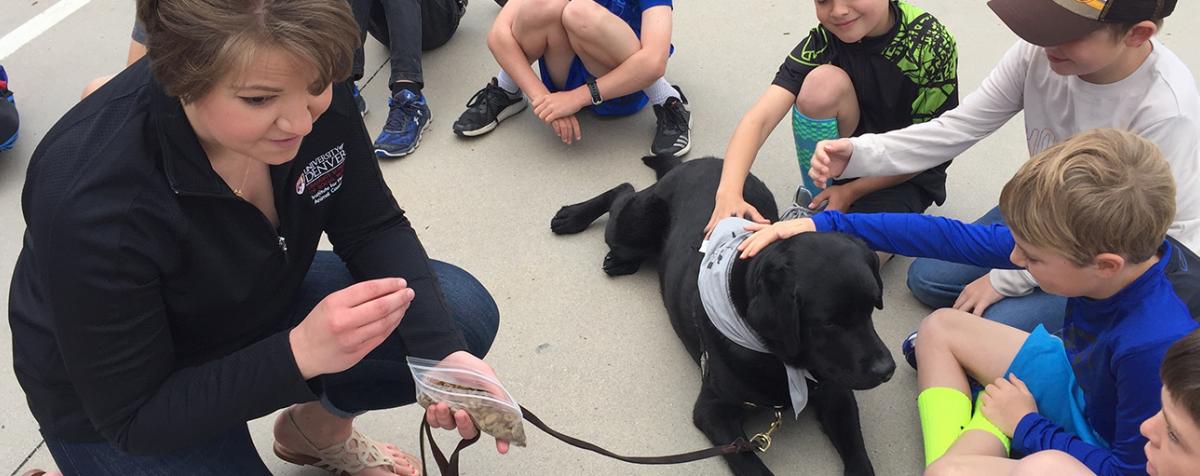Education about Human-Animal Interactions
IHAC Programs for Students and Professionals
Education is a core part of our mission. In fact, it’s why the Institute for Human-Animal Connection (IHAC) was created! Through our continuing education certificates and courses, we work to elevate the value of the living world and the interrelationship and health of people, other animals, and the environment. Our programs exist to provide education and training in human-animal interactions for professionals working in various human service fields with a strong emphasis on ethics and animal well-being.
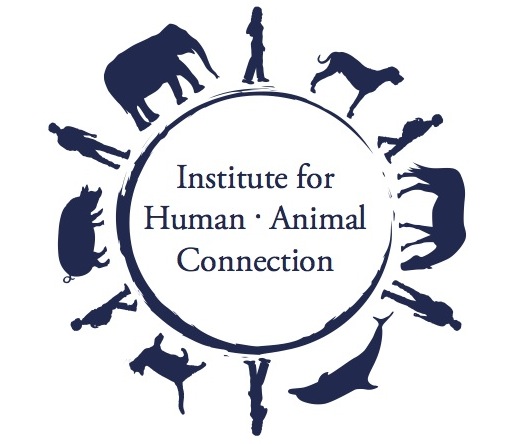
Whitney Romine, Alumni, Animals & Human Health Certificate Read More“It is important to incorporate animals and the environment into social work, public health and other fields because all life is interconnected. To improve the conditions for all, we must continually study and advocate for each individual.”
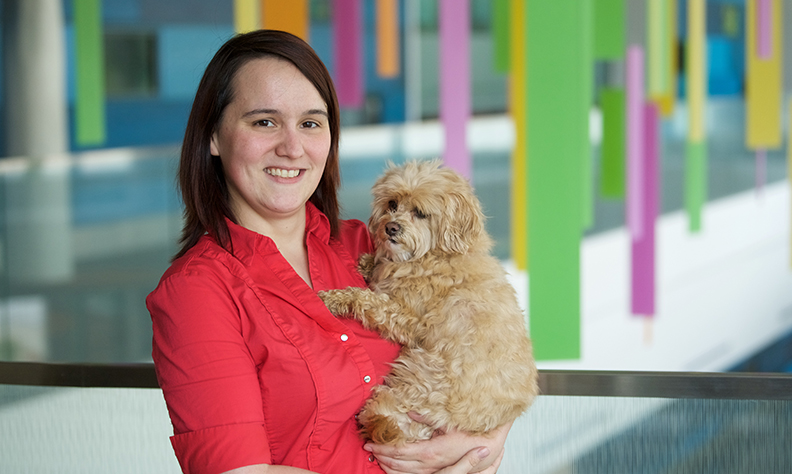
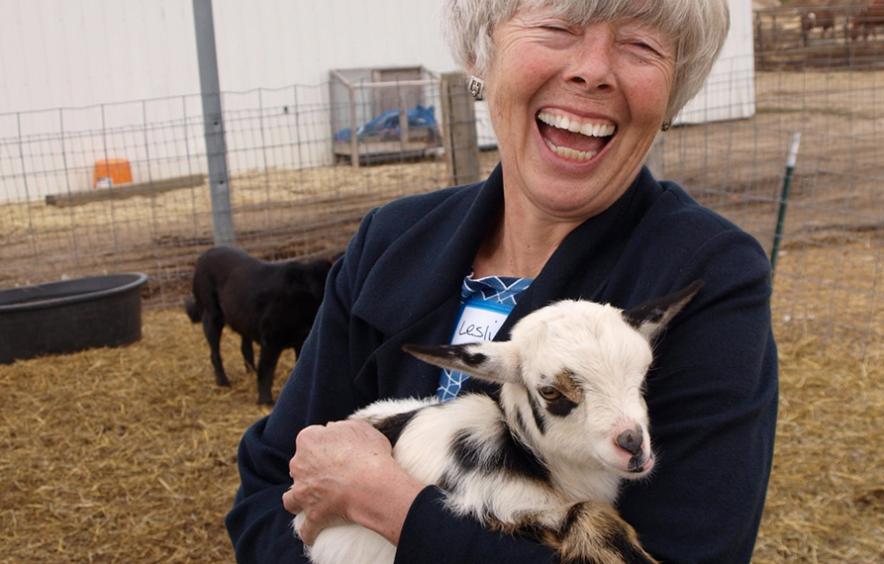
Continuing Education Options
Broaden your understanding and enhance your professional skill through our professional development certificate programs, which can be completed alongside full-time employment or study, regardless of where you live. Our professional development programs have enrolled students from across the globe! With the exception of in-person workshops in our Equine-Assisted Mental Health (EAMH) practitioner certificate, all programs are completely virtual.
-
Animals and Human Health Certificate
Practical applications of human-animal interactions
The animals and human health certificate focuses on human-animal interactions, activities, and learning.
The animals and human health certificate focuses on human-animal interactions, therapy, activities, and learning. You’ll develop skill and expertise regarding the practical applications of human-animal interactions and understand how the effects of these methods can be demonstrated across human service settings with various populations. You will also learn how these interactions can be incorporated in practice by a range of professionals and how to create and implement high-quality, human-animal-environment interaction programs with a critical emphasis on ethics and animal well-being.
-
Canine-Assisted Intervention Specialist Certificate
Canine behavior, training, health, and wellness
The canine-assisted intervention specialist certificate provides competency-based training for human-animal interaction professionals seeking to improve their skills and knowledge of working with dogs.
The canine-assisted intervention specialist certificate provides competency-based training for human-animal interaction professionals seeking to improve their knowledge of and skill working with dogs. You will develop a deeper understanding of the needs of your canine partners, practice training dogs for specific skills, and increase your knowledge of the ethics and standards involved in working effectively and humanely with dogs in human-animal interactions.
-
Equine-Assisted Mental Health Practitioner Certificate
Ethical clinical practice with horses
The equine-assisted mental health practitioner certificate program will help enhance your clinical therapy practice through integrating interactions with horses as a therapy technique.
Do you want to integrate equines into your psychotherapy practice? Are you already practicing but want more knowledge and skill? The equine-assisted mental health practitioner certificate program will help you enhance your clinical practice through equine interactions. You’ll receive education, training and supervision necessary for ethical practice, including techniques tailored to your clinical interests and the clients you serve.

Orientation to Human-Animal Interactions Course
The Orientation to Human-Animal Interactions professional development course is a great starting place for students to gain an introduction to the variety of applications and research in this field. Students will gain practical knowledge about the power of the human-animal bond across lifespans and communities, in a self-paced, asynchronous online course model. Through an overview of micro or clinical applications, students will become familiar with the concept of human-animal interactions (including activities, education, and therapy), terminology and implications for different working animals (including therapy animals, service animals, and emotional support animals), and considerations for the welfare of working animals. Through a mezzo and macro lens, students gain education on the role of pets in communities, humane education, LINK violence, policy implications for wildlife, and the One Health model.
Course Overview
- Module 1: The Human-Animal Bond and Redefining Our Relationship with Animals
- Module 2: Animal-Assisted Interactions: Terminology and Applications
- Module 3: Considering Animals in Helping Roles and Animal-Assisted Interactions
- Module 4: Community-Based Applications of Human-Animal Interactions
- Module 5: Future Opportunities in Human-Animal Interactions
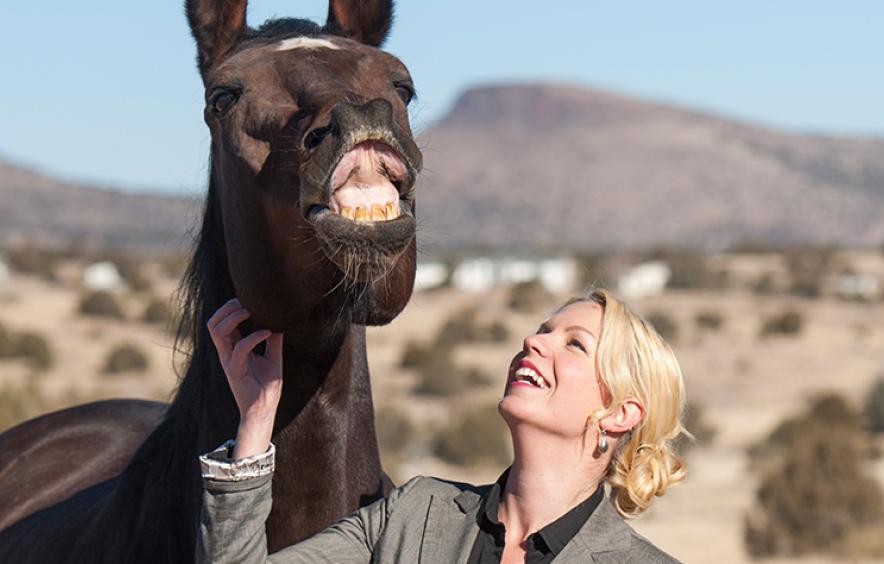
Equine Behavior Course
This online course in Equine Behavior is open to individuals of any experience level. Each week features readings, teaching videos, a quiz and a discussion forum. The course is focused on understanding the behavior and cognition (mental capacities and learning) of horses within the context of how to best care for, interact with, and train horses using the most recent scientific information.
Darlene Brace, Alumni, Animals & Human Health Certificate, Canine-Assisted Intervention Specialist Certificate Read More"The capstone project of the Animals and Human Health certificate was so beneficial as it helped me put all my knowledge into practice. I then went on to get the Canine-Assisted Intervention Specialist certificate and the weekly practice in training and canine behavior really helped me hone my skills and practice with feedback, helping me build my confidence and knowledge base. In both programs, the community of peers was one of most valuable experiences."

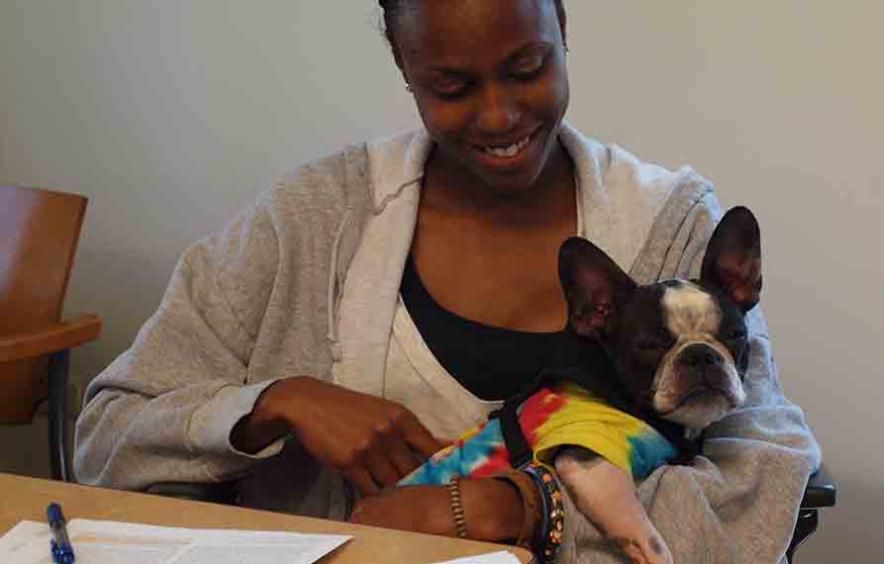
MSW Human-Animal-Environment Interaction Certificate
The University of Denver's Graduate School of Social Work (GSSW) offers the human-animal-environment interactions in social work (HAEI-SW) certificate for MSW students. The first of its kind area of study prepares graduate students to recognize the impact of human-animal-environment interactions in culturally responsive and ethically advanced professional social work practice settings. This certificate is currently available to students enrolled in the Denver Campus master of social work (MSW). Students complete the certificate alongside their other MSW coursework.
